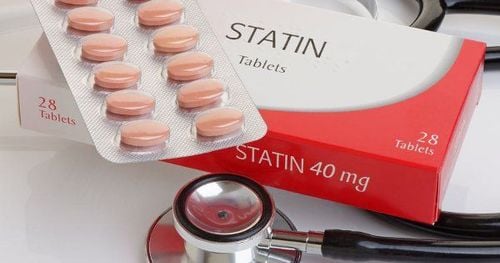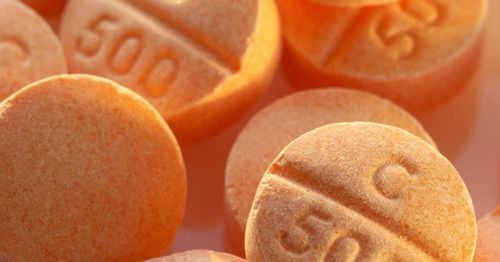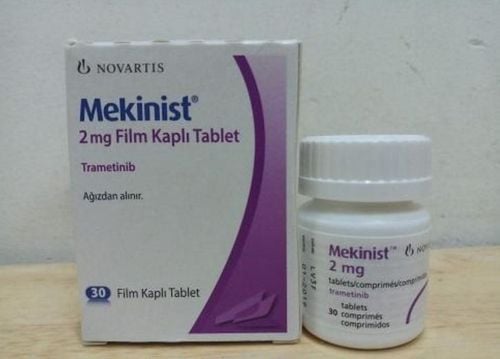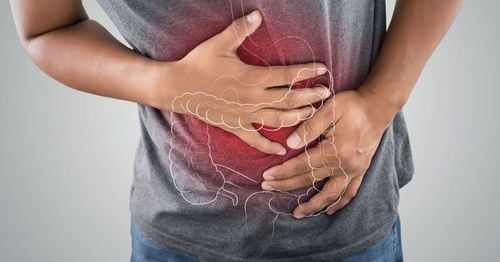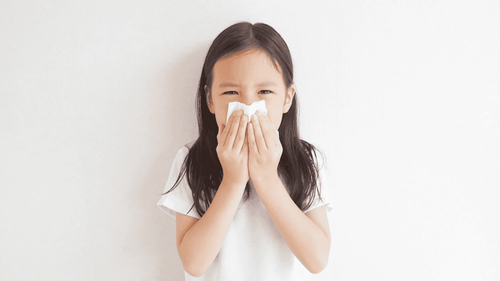This is an automatically translated article.
Smoking is one of the leading preventable causes of death in the world, but quitting can be daunting for many people. Many people fear that it will take a long time to see improvements in their body's health, but the time to see real benefits is faster than we often think. The health benefits begin at least an hour after your last cigarette and continue to improve.1. Health benefits of quitting smoking over time
Quitting smoking means breaking the cycle of addiction and essentially eliminating the brain's repetition to stop nicotine addiction. To be successful, smokers who want to quit need to have a plan to beat cravings and triggers.
The benefits of quitting smoking begin at least 1 hour after the last cigarette smoked. The sooner smokers quit, the faster they reduce their risk of cancer, heart and lung disease, and other smoking-related illnesses.
Trắc nghiệm: Bài kiểm tra chỉ số trí tuệ cảm xúc (EQ) của bạn
Chỉ số trí tuệ cảm xúc Emotional Quotient (EQ) là một chỉ số dùng để nói lên trí tưởng tượng, đánh giá và cảm xúc của một con người. Hãy làm bài trắc nghiệm sau để biết chỉ số EQ của bạn là bao nhiêu?
Nguồn tham khảo: webmd.com
The benefits are almost immediate. As soon as a person stops smoking, their body begins to recover in the following ways:
After 1 hour : As late as 20 minutes after smoking the last cigarette, the heart rate should drop and return to normal . Blood pressure begins to drop and circulation may begin to improve. After 12 hours: Cigarettes contain many known toxins including carbon monoxide, a gas found in tobacco smoke. This gas can be harmful or fatal in high doses and prevents oxygen from entering the lungs and bloodstream. When large doses are inhaled in a short time, it is possible to suffocate due to lack of oxygen.
After just 12 hours of not smoking, the body will clear itself of excess carbon monoxide in cigarettes. Carbon monoxide levels return to normal, increasing the body's oxygen levels.
After 1 day: Just 1 day after quitting, the risk of heart attack begins to decrease. Smoking increases the risk of developing coronary heart disease by lowering good cholesterol, making it harder to get heart-healthy exercise. Smoking also increases blood pressure and increases blood clotting, increasing the risk of stroke. Within just 1 day of quitting smoking, a person's blood pressure begins to drop, reducing the risk of heart disease caused by high blood pressure caused by smoking. During this short time, a person's oxygen level will increase, making physical activity and exercise easier, and promoting beneficial cardiovascular habits.
After 2 days: Smoking damages the nerve endings responsible for the senses of smell and taste. For as little as 2 days after quitting, a person may notice a heightened sense of smell and more vivid taste as these nerves heal. After 3 days: 3 days after quitting, nicotine levels in a person's body will be depleted. While not having nicotine in the body is healthier, this initial decline can cause nicotine withdrawal syndrome. About 3 days after quitting, most people will feel moody and irritable, have severe headaches, and crave the drug as their body readjusts. After 1 month: Within 1 month, a person's lung function begins to improve. As the lungs heal and lung capacity improves, former smokers may notice less coughing and shortness of breath. Endurance with athletic performance increases, and former smokers may notice new possibilities for cardiovascular activities, such as running and jumping. After 1-3 months: For the next few months after quitting, circulation continues to improve. After 9 months: Nine months after quitting, the lungs have significantly healed on their own. The delicate, hair-like structures inside the lungs called cilia have recovered from the damage cigarette smoke does to them. These structures help push mucus out of the lungs and help fight infection. Around this time, many former smokers notice a decrease in the frequency of lung infections as the healed cilia can do their job more easily.
After 1 year: One year after quitting smoking, a person's risk of coronary heart disease is halved. This risk will continue to decrease past the 1-year mark. After 5 years: Tobacco contains many toxins that are known to cause narrowing of arteries and blood vessels. These same toxins also increase the likelihood of blood clots forming. After five years of not smoking, the body has healed enough on its own that the arteries and blood vessels begin to widen again. This expansion means that the blood is less likely to clot, reducing the risk of stroke. The risk of stroke will continue to decrease over the next 10 years as the body continues to recover. After 10 years: After 10 years, a person's chance of developing lung cancer and dying from lung cancer is nearly half that of someone who continues to smoke. The chance of developing cancer of the mouth, pharynx or pancreas has been significantly reduced. After 15 years: After 15 years of quitting smoking, the likelihood of coronary heart disease is similar to that of a non-smoker. Similarly, the risk of developing pancreatic cancer has been reduced to the same level as for non-smokers. After 20 years: After 20 years, the risk of dying from smoking-related causes, including lung disease and cancer, drops to that of someone who has never smoked in their life. In addition, the risk of developing pancreatic cancer was reduced compared with those who had never smoked.
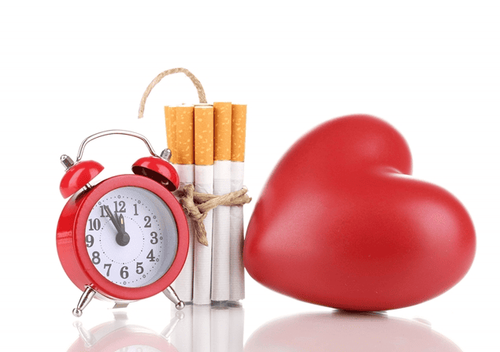
2. Other benefits from quitting smoking
The milestones outlined above represent just a few of the benefits of quitting smoking. Quitting smoking lowers your risk of diabetes, allows your blood vessels to work better, and helps your heart and lungs.Life expectancy of smokers is at least 10 years shorter than that of non-smokers. Quitting before age 40 reduces the risk of dying from a smoking-related illness by about 90%.
Quitting at a young age lowers your health risks even more, but quitting at any age can bring back years of life lost by continuing to smoke.
Quitting the habit of smoking offers some rewards that you will notice immediately, and some rewards that will appear gradually over time.
Instantly, you will save money you spent on cigarettes! And here are just some of the other benefits you might notice:
Food tastes better. Your sense of smell returns to normal. Your breath, hair and clothes smell better. Your teeth and nails stop yellowing. Normal activities make breathing less difficult (for example, climbing stairs or doing light housework). You can stay in smoke-free buildings without having to go outside to smoke. Quitting smoking also helps prevent tobacco's harmful effects on your appearance, including premature wrinkling, gum disease, and tooth loss.

3. Some tips to help quit smoking
Before you want to quit smoking, you must commit yourself to quitting. Smoking is a habit that you have learned and need to stop. This is very difficult, but it is still possible if you have strong will. Quitting smoking will help you live a longer and healthier life.3.1. Ready to quit smoking
Follow these guidelines to quit smoking:Cut down on the number of cigarettes you smoke each day. Only smoke half a cigarette at a time. Only smoke at even hours of the day. Wash the curtains, clean the car, clean the office or anywhere that smells like cigarettes. Get your friend or spouse to quit smoking together. Start exercising before you quit smoking. Switch to another type of cigarette that you don't really like. Discard excess lighters. Smoke alone even if you prefer to smoke with others. Every time you pick up a cigarette, figure out why you want to smoke. Avoid things that make you want to smoke. Write down 5 reasons why you want to quit smoking. Read this reason daily. Pick a date to start quitting and cut down on cigarettes one cigarette at a time until the day you decide to quit. On the day you quit smoking, stop completely. If you have a habit of smoking a lot at work, you should quit smoking while on leave.
On the day you quit:
Get rid of all cigarettes, lighters and ashtrays in your home. Ask family and friends for help. Plan your day and stay busy. Spend time in non-smoking places like the library or the theater. Change your daily habits. Drink water, but don't drink more than 2 liters. This helps filter out chemicals in your body. Bring celery, sugar-free gum, hard candy, straws or toothpicks to keep in your mouth when you need something. Practice deep breathing and listen to relaxing music. Exercise for about 30 minutes. Eat and drink regularly. Put the money saved from not buying cigarettes into the piggy bank. Reward yourself at the end of the day if you don't smoke. Over the next few days to weeks, you will experience smoking cessation and cravings. Exercise and relaxation will help you overcome quit smoking symptoms such as irritability, frustration, or anger. There will be times when you really want to smoke again. Please wait. The craving will pass within a few minutes. Take deep, slow breaths until you feel lighter and control the urge to smoke.
Get rid of the cigarette obsession in your mind and think about other problems or focus on the work you are doing. Record your success every day on the calendar. Reward yourself after every day and every week of being smoke-free.

3.2. Back to old habits
It is very difficult to quit smoking. Most of you have to try many times before you really quit. If you accidentally smoke again, don't give up on your efforts.Remind yourself how many hours, how many days, how many weeks you have abstained to get to this point. Review what made you want to smoke. Remind yourself why you want to quit.
Vinmec International General Hospital is one of the hospitals that not only ensures professional quality with a team of leading medical doctors, a system of modern equipment and technology. The hospital provides comprehensive and professional medical examination, consultation and treatment services, with a civilized, polite, safe and sterile medical examination and treatment space. Customers when choosing to perform tests here can be completely assured of the accuracy of test results.
Please dial HOTLINE for more information or register for an appointment HERE. Download MyVinmec app to make appointments faster and to manage your bookings easily.
Article referenced source: cancer.org, medicalnewstoday.com



